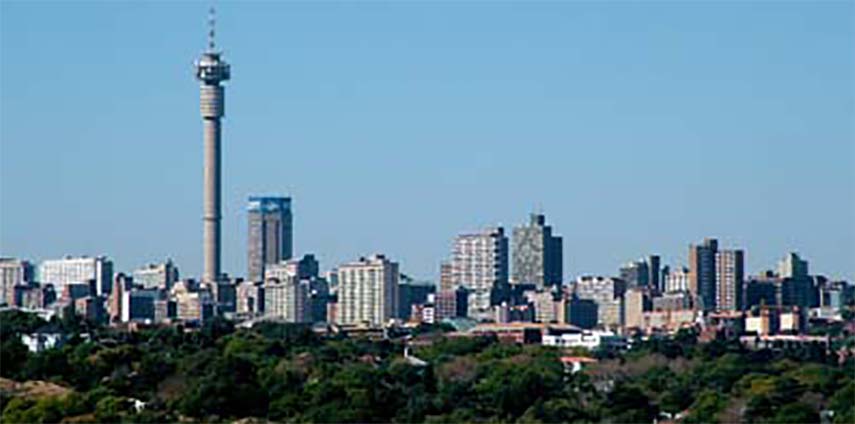Johannesburg officially confirmed its position as Africa’s digital infrastructure powerhouse.
The new Cushman & Wakefield 2025 Global Data Centre Market Comparison ranks Johannesburg as the continent’s leading data centre market and places it in the top 10 emerging markets globally.
“This ranking signals the city’s pivotal importance to Africa’s role in the global digital ecosystem,” comments Calvin Crick, director of Cushman & Wakefield | BROLL Transaction Services.
The report, which benchmarks 97 global markets across 20 strategic criteria from power availability and land pricing to fibre connectivity and regulatory stability, highlights Johannesburg’s maturity and momentum.
Reinforcing Africa’s growing relevance in the global data centre ecosystem, Nairobi and Lagos also earn distinction as rising contenders with notable strengths in renewable energy integration and climate resilience.
An evolving market
As global hyperscalers re-evaluate long-term strategies amid evolving AI trends, Crick notes a more measured approach to expansion.
“While cloud data centres have a well-defined tried-and-tested model and demand remains strong, there’s a growing realisation that AI data centres differ significantly in design, demanding far more power and cooling capacity,” says Crick. “The ideal scale of these facilities is still being bedded down, and with development timelines stretching up to four years, global players are being more cautious in their investments.”
Africa’s role
In the broader context, Africa is still considered a nascent region for large-scale data centre growth, but its relevance is increasing.
While South Africa clearly leads the continent, Cushman & Wakefield | BROLL is also seeing increased activity in other regional hubs. Nairobi offers a sustainability edge and Lagos presents latent potential.
Favourable macro trends for these African cities include power pipeline diversification, regulatory openness and land availability with lower acquisition costs compared to North America and Europe.
None yet challenge the dominant markets but their presence in the report indicates that Africa is steadily securing its role in the next wave of global digital infrastructure expansion and signals rising investor interest.
SA’s data centre market is future focused
Locally, existing colocation providers, which rent space within their data centres for other companies to house servers and computing equipment, have moved swiftly to expand capacity, particularly in Johannesburg’s East Rand and Samrand nodes. These areas have become preferred destinations due to their access to power and absence of key locational risks specific to data centres.
Angus Murray, of Cushman & Wakefield | BROLL Transaction Services, explains: “The colocation market in South Africa has grown steadily, with ample space now available for hyperscalers to lease without the need for greenfield development. We expect it to take time for that capacity to be fully absorbed.
“Interestingly, in Cape Town, which is South Africa’s second significant data centre market, we’re seeing land banking activity, which is a sign that shrewd data centre players are positioning for the future and securing sector-specific prime locations for tomorrow’s demand and dynamics now,” Murray adds.
Site selection is about power
Both experts stress that data centre site selection is governed by power availability rather than location alone.
Crick elaborates “It’s not about finding premium land, it’s about finding power-connected land that meets a matrix of data centre-specific criteria, which includes low flood risk, minimal surrounding residential exposure, multiple access points, fibre connectivity and proximity to major electrical substations.
“Power delivery costs often exceed land values. The greater the distance from a major substation, the greater the costs. So, it’s important to understand all the nuances when establishing the viability of each potential data centre site.”
Johannesburg dominates
Johannesburg stands out as Africa’s most mature data centre hub. It is the only African city included in the report’s emerging markets rankings top 10, coming in at number 10 globally, which underscores its growing relevance as a digital infrastructure gateway into sub-Saharan Africa.
Key indicators driving Johannesburg’s inclusion include its preleased capacity, with over 50% of its pipeline already committed, suggesting healthy demand from hyperscalers and regional enterprises.
It is also one of the few African markets with ≥20MW of power availability in a single facility, placing it on par with major international markets such as Warsaw and Chicago.
Plus, Johannesburg has a track record of resilience demonstrating strategic planning, ranking among cities that have successfully built data centres outside high-risk flood zones.
Nairobi is emerging
Nairobi, although it doesn’t rank in the top 10 emerging markets, earns specific recognition under renewable energy criteria. It is one of the few global markets with renewable power exceeding 70% of the total fuel mix, which is a strong advantage as sustainability becomes a major driver of data centre strategy.
This renewable advantage aligns Nairobi with markets like Reykjavik and Oslo, reinforcing its potential as a green data centre destination, especially for African and global tech firms prioritising ESG benchmarks.
Lagos of strategic interest
Although Lagos remains on the periphery of the global rankings, like Nairobi it features notably for its low environmental risk, being outside major seismic zones but flood risks do need to be investigated.
Lagos offers relatively affordable power compared to European and APAC hubs, although power reliability is a critical issue with generators still generally being essential for operations.
However, it has yet to achieve the large-scale infrastructure and preleasing momentum seen in Johannesburg, suggesting its market readiness is still being established.
Site certainty
“While South Africa’s in pole position for data centres, Nigeria and Kenya are clearly the next biggest data centre growth markets on the continent,” says Murray.
Crick adds: “Whether in Johannesburg, Nairobi, Lagos or elsewhere in Africa, navigating site complexity, securing viable land and making confident, future-ready investment decisions are all possible with deep regional and sector expertise. Our expanding portfolio of identified power-viable sites is driving long-term value across the continent’s most dynamic markets.”

